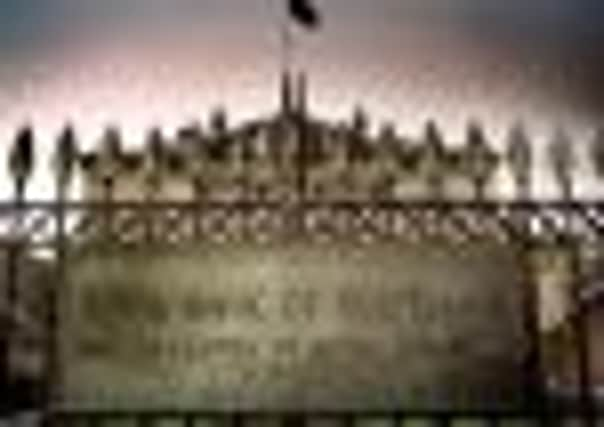RBS customer who was awarded £200k by judge after dispute with bank has award withdrawn


• Nigel Matheson said RBS withdrew extension to company overdraft then “unilaterally” withdrew it
• RBS was ordered to pay £200,000 after Mr Matheson was granted a decree
Advertisement
Hide AdAdvertisement
Hide AdThe restraunteur had sued the bank in a long-standing dispute, and because of “oversights” by the bank and its lawyers, the action was was not defended and a decree was granted in his favour.
RBS tried to have the decree set aside but a judge, Lord Glennie, ruled last year that it should stand. Yesterday, however, three appeal judges in the Court of Session in Edinbugh said justice demanded that the case be put back on track and the bank be given a chance to present a defence to Mr Matheson’s claim.
Mr Matheson described it as a “sad day for justice” and said he intended to increase the damages he was seeking to £900,000.
“I can’t do anything about the judgment. We now go back to court and start all over again. I’ll cite Fred Goodwin, Gordon Pell, Benny Higgins and the lot of them,” he said.
Advertisement
Hide AdAdvertisement
Hide Ad“I think Lord Glennie is a judge who is in touch with the nauseous standards we have to put up with these days in banking, and he can identify the rot and is brave enough to say so. It is a very sad day for someone like myself who follows the rules of court to the letter. I feel Lord Glennie has been overridden by the establishment.”
Mr Matheson runs a bed and breakfast at Ballachallan, Cambusmore, Perthshire. He also used to have The Conservatory
restaurant. He claims that in 2005 RBS granted a £5,000 extension to his company’s overdraft but then unilaterally withdrew it.
PSYCHIATRIC INJURY
As a result, he alleges, the business suffered and he was caused psychiatric injury.
Advertisement
Hide AdAdvertisement
Hide AdIn 2008, Mr Matheson raised an action in Perth Sheriff Court, seeking £200,000 damages for his hurt. The bank has lodged defences and the case is continuing.
In 2010, he also served a Court of Session summons on RBS, asking for £200,000 damages for the business. At that stage, he had solicitors, but they later withdrew from acting for him.
As a party litigant, Mr Matheson lodged the summons for “calling” - a crucial procedural step in litigation which should trigger action by the other side - and it was published on the Court of Session’s calling list. However, there was no response from RBS, and Mr Matheson was granted a decree in absence.
RBS subsequently learned of the decree and immediately raised the current case to have it “reduced” - declared null and void. It said it had a defence to the action.
Advertisement
Hide AdAdvertisement
Hide AdLord Glennie refused. He said decrees were not normally set aside where they had been granted due to the failures of a party or his lawyers to comply with court procedures. The exceptional case involved mitigating circumstances - where “the error is to some extent excusable” - but he did not believe this was such a case.
APPEAL
At the appeal, RBS said Lord Glennie had failed to give proper weight to the fact that, if the decree were not to be wiped out, Mr Matheson “would obtain a substantial and wholly unjustified windfall.”
Lord Philip, sitting with Lords Eassie and Mackay, said they clearly had to consider the “series of errors and omissions” by the bank’s lawyers, McGrigors, for which there was “little real excuse.” However, it was a case in which a substantial defence had been put forward, and decree had been allowed to pass against the bank without investigation of it.
“That, in our view, is the overriding consideration,” he added.
Advertisement
Hide AdAdvertisement
Hide AdOne option would have been an action by RBS against McGrigors, but the judges did not think it would be the best solution.
“We incline to the view...that justice would be better served by allowing the issue between the parties to be determined in the orignal action. As a result, we consider that justice requires that decree of reduction be pronounced,” said Lord Philip.